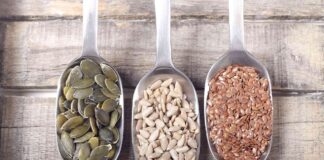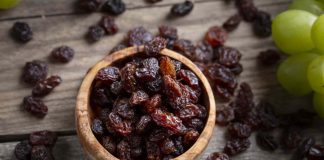The surge in cancer cases among adults under 50 is a growing global health crisis, with gastrointestinal cancers, particularly colorectal cancer, increasing at an alarming rate. While lifestyle factors like obesity and smoking contribute, a new study published in JAMA Oncology points to a more insidious culprit: ultra-processed foods (UPFs).
For decades, early-onset colorectal cancer was rare. Now, one in five diagnoses occurs before age 55, and routine screenings don’t begin until 45, meaning many cancers are detected late. Researchers have been scrambling for answers, but this study provides the most compelling evidence yet: the more ultra-processed foods women eat, the higher their risk of developing precancerous polyps – and eventually, cancer.
The Study: Tracking Decades of Dietary Habits
Researchers analyzed data from the Nurses’ Health Study II, a long-term study tracking the health and lifestyle of over 29,000 women under 50. Participants completed detailed food questionnaires every four years and underwent lower endoscopies. Those with prior cancer history or inflammatory bowel disease were excluded. The goal was to determine if diet quality influenced colorectal cancer risk before age 50.
The results were stark: women consuming the highest amounts of ultra-processed foods (roughly one-third of their daily calories) had a 45% higher risk of developing precancerous polyps compared to those eating the least. The relationship was clear and consistent, with higher UPF intake directly correlating with increased polyp risk.
What Are Ultra-Processed Foods?
UPFs are foods engineered for convenience, shelf life, and palatability, often at the expense of nutritional value. They include:
- Packaged breads and cereals: Highly refined grains with added sugars and preservatives.
- Sweetened beverages: Sodas, juices, and energy drinks loaded with sugar.
- Ready-to-eat meals: Frozen dinners, instant noodles, and pre-packaged snacks.
- Processed meats: Hot dogs, deli slices, and bacon with added nitrates and preservatives.
- Bottled condiments: Sauces, dressings, and marinades with artificial flavors and additives.
These foods dominate modern diets, filling shopping carts with convenience but undermining long-term health.
The Biological Mechanisms Behind the Risk
While a direct causal link isn’t fully established, scientists suspect several mechanisms:
- Chronic Inflammation: UPFs trigger low-grade inflammation throughout the body, creating an environment where cells accumulate DNA damage.
- Gut Microbiome Disruption: The lack of fiber and abundance of additives in UPFs harm beneficial gut bacteria, promoting harmful species.
- Advanced Glycation End Products (AGEs): Formed during high-heat processing, AGEs accumulate in tissues, causing oxidative stress and inflammation.
These factors create a perfect storm for precancerous changes, setting the stage for cancer development over time.
What This Means for Women’s Health & How to Take Action
Early-onset colorectal cancer is on the rise, and screenings don’t begin until 45. Prevention is critical. Here’s how to reduce your risk:
- Reduce UPF Staples: Packaged breads, sweetened yogurts, cereals, and flavored creamers contribute significantly to UPF intake.
- Prioritize Fiber-Rich Whole Foods: Aim for 25–35 grams daily from vegetables, beans, whole grains, berries, nuts, and seeds.
- Limit Sugary Drinks: These beverages contribute to metabolic and digestive disturbances.
- Choose Shorter Ingredient Lists: If the label reads like a chemistry set, it’s likely a UPF.
- Know the Warning Signs: Persistent changes in bowel habits, blood in stool, unexplained weight loss, or ongoing abdominal cramping warrant a doctor’s visit.
The Takeaway
This study focused on white female nurses, so more diverse research is needed. However, the core message is clear: what we eat today shapes our cancer risk decades later. The rise in early-onset colorectal cancer isn’t random; it’s unfolding alongside dramatic shifts in how we produce and consume food.
Dietary choices are a powerful tool for long-term health. By reducing ultra-processed foods and prioritizing whole, nutrient-rich alternatives, you can empower yourself to reduce your risk and safeguard your future






















